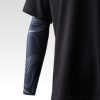
How many energy drinks do you drink per day? What about a week? Can you confirm they work based on your experience? Do you feel any adverse effects?
Energy drinks are an integral part of both traditional sports and esports. At all tournaments, you will see Red Bull, Monster, Burn or Adrenaline Rush act as first-class sponsors, and streamers often have promotional coolers in the background. However, do energy drinks really work? Are they unhealthy? In short, everything is not so rosy. CS.MONEY Blog discusses how energy drinks work and busts (and confirms) myths.
What do energy drinks contain?
Almost all popular energy drinks will have similar ingredient compositions. Sparkling water first. Then, in random order: sugar/glucose, taurine, caffeine, vitamins. Let’s take a look at the ingredients.
- Sucrose/glucose supplies energy during physical exertion (roughly speaking, it nourishes tired muscles). Daily excess sugar intake can cause an increase in blood glucose levels, which in the long run leads to increased urination, thirst, and fatigue, as well as reduced visual acuity.
- Taurine, in various doses, is harmless mainly: little, much, and even long-term usage. Moreover, your body simply will not process excess taurine. In general, this protein helps to cope with physical stress.
- Caffeine reduces drowsiness, increases nervous activity and blood pressure (dilates blood vessels), and speeds up your pulse. Caffeine slows down drowsiness activators and also forces the body to use internal resources.
- Vitamins act as a bonus as if a buff for all other active substances while nourishing the body with necessary stuff. Most act as levelling agents.

One energy drink can contain these ingredients equivalent to four tablespoons of sugar and one to two cups of coffee. But in general, these are normal and harmless amounts for the human body. You can safely use one or two cans a day and up to eight a week, given that you do not seize all this with coffee with sweets.
How drinks for athletes became a mass market
We had a serious reason to highlight that most ingredients help cope with the physical stresses of the human body. Sucrose/glucose stimulates the body to work but does not do this at its own expense, encouraging your body to use its own resources.
The first energy drinks were created for traditional athletes with their volumetric loads and impressive amounts of food consumed (it’s simple here: you spend a lot of energy, so please be kind to fill the tank accordingly). And besides, energy drinks only work for a little more than an hour, then they must either be extended or replenished. That is, for distance sports like biathlon or marathon, they are not just useless, they are harmful. You’ll get a boost at the start, and your energy will fall below zero halfway through. Now, how long are your gaming sessions? Four hours straight? Exactly.

Then, energy drinks were popularized in the middle of the last century due to clever marketing. They turned into something completely different in terms of consumer culture but contains remained practically unchanged.
It turns out that consuming energy drinks and having a low level of physical activity will stimulate your body to work/recover in vain. Surely, your brain/eyes/arms are also muscles and work to the limit during sweaty maps on FACEIT, but this is still not the kind of load that occurs even during walking, not to mention more dynamic sports.
Do energy drinks affect health?
They do, but depending on what dose you take and your lifestyle. The acceptable norm, which will not lead to excess blood sugar or injury to the nervous system due to caffeine, is a couple of cans a day, considering you do not drink coffee with sweets, as we have already indicated above. A healthy sleep pattern, at least some physical activity (you take the stairs instead of elevator or walk the dog for at least half an hour) and equal and versatile food intake (vegetables, side dishes, meat) will allow you to safely drink 1-2 cans per day.
But if you eat fast food, you don’t get up much from your chair, but you sip Red Bull like water, we have bad news. Frequent urination; simultaneous eternal drowsiness + insomnia due to caffeine and its substitutes; the infamous sugardrink “I’m thirsty – I drink more – I’m thirsty even more” combo; all kinds of stomach / intestinal ulcers due to acids; and more.

Mythbusting energy drinks
Here, let’s talk about truth and lies about energy drinks.
- Energy drinks reduce drowsiness and give energy. That’s true. EDs really make you feel energized but only using your own resources and for an hour and a half max. It’s safer just to make coffee.
- You can only drink one can in a few days. It’s a lie. In general, one can of energy drink can be regarded as a large cup of coffee with a few tablespoons of sugar. A drink a day keep your sleep away, but a dozen a week makes your sleep bleak.
- There is less sugar in energy drinks than in Coca-Cola and analogues. That’s true. But there are just as many other harmful substances and even more caffeine.
Conclusion: Be careful with amounts
In general, we have already described all possible risks and negative effects, as well as positive ones. The most important thing is not to drink too much and care for yourself.
Are you looking for alternatives to replace energy drinks?
- Simple solutions are coffee and tea. Both contain caffeine, are hot drinks, and will shake you up.
- Exercises. We’re not joking. Five minutes of warm-up will disperse your blood and deceive your body, as if you were going to play sports.
- Lemonade water with sugar. The usual simple lemonade stimulates your body and refreshes it; there will be much less sugar and it is good for the stomach.
By the way, we have more useful materials (guides, stories, compilations, interviews and etc) in our Blog. Bookmark this page and read!















